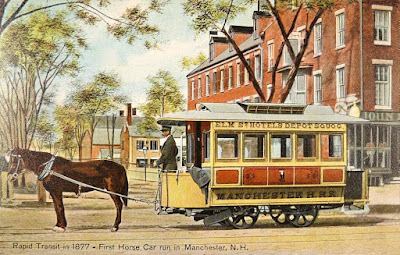This “essay” is set up in point-form with the sub-title, Twenty-seven Propositions About Global Thinking and the Sustainability of Cities. It’s going to be difficult to review, not only because of the structure, but also because Berry is such an original thinker and has so much of value to say. It is almost a shame to leave anything out.
1. Global thinking is not possible; those who claim to be global thinkers have
done so in a manner too simplistic and oppressive to merit the word
“thinker”. Global thinkers are dangerous (national ones too) and he gives
the example of his state of Kentucky being used as a garbage dump.
Apparently it’s okay with everyone except those who live in the state.
2. Global thinking is only based on statistics and can only do something if it is willing to
be destructive on a large scale, however, conversely, one is able to make a positive
impact locally. Global thinking takes you so far from your neighbourhood, soon you
are unable to recognize it. Instead, get out of your spaceship, car, or horse and
walk on the solid earth to discover its wonder.
3. If we really thought locally, we would make better choices and those choices would
make a positive impact globally.
4. By making the local community independent, self-sufficient and capable, and do it
with creativity, mercy and endurance, we ensure the community is seen in “proper
relation” to the rest of the world, instead of employing “presumptuous abstractions
of ‘global thought'”.
5. We must ensure that we don’t demand too much of the globe, and therefore help
destroy it, and to accomplish this desire, we must live at home as independently
and self-sufficiently as we are able. The earth’s limitations should be constantly
kept in mind.
6. A sustainable city can only exist if the city and countryside are in balance.
7. Our current cities are “out of balance”, living off the “principal” of ecology without
adding to it, and their faulty assumptions will lead to their downfall.
8. Industrial machinery has contributed to the destruction of this balance, by providing
cheap production and transportation.
9. Since the Civil War, and more since WWII, the fossil-fuel industries regulate the
patterns of productivity.
10. Fossil fuel sources are rural and historically have been produced at the expense of
the community and local ecosystems, because care of these does not profit the
producer. “It assigns no value to local life, natural or human.”
11. When industrial principles are applied to field and forest, both die.
12. Industrial principles forced onto the countryside make people dependent and the
corporations powerful. A small number of people own land, and the workers are
hostages of their employers.
13. Our leaders, most of whom have wealth, do not understand how to make
community function well because they must be ready at any time for power and
wealth to destroy community.
14. Ecological sense is in conflict with economic entities because it requires reduction
or replacement of those entities. Only the work and will of the people can further
this “sense”.
15. Because now all institutions have adopted industrial methods of organizational
patterns and quantitative measures, both sides of the ecological debate are
alarmingly abstract.
16. The abstraction is what’s wrong. The evil of either capitalist or communist industrial
economy is its inability to distinguish one place or person or creature from another.
17. The abstractions of sustainability can destroy the world, the same as the
abstractions of industrial economy. Even those who want to save the plant can ruin
it by abstractions and central organization because they cannot know the local
nature or community.
18. You must make ecological good sense locally. You can’t act locally and think
globally.
19. No one can make ecological good sense for the planet; everyone can make
ecological good sense locally, if the scale, knowledge, tools and skills are right.
20. “The right scale in work gives power to affection”. When when one works beyond a
love for a place, destruction results, and an adequate local culture is needed for
balance. (I didn’t quite understand this point. Sorry, Wendell!)
21. How do we make a local culture that will preserve our community? We need a
knowledge that comes from or with affection, but is unavailable to the unaffectionate
or to anyone simply as “information”.
22. What is the economic result of a local affection? We may never know as love can
be enigmatic and unfathomable, and the answer would never satisfy a corporate
executive.
23. The steps to saving the planet are small steps, which are humbling and rewarding.
Its jobs and successes will be many but rarely noticed, nor will they make anyone
wealthy or eminent.
24. Many people are motivated by fame instead of greed, but this sort of attitude will
never truly be a benefit to the planet.
25. Good workers are persons willing to enter the daunting and humbling local
presence of a problem and tackle it one life at a time.
26. Some cities will never be sustainable because they don’t have countryside
surrounding them or near them. For example, New York or Phoenix will never be
sustainable.
27. To make a city sustainable, start small by increasing local food brought in by
farmers, then as the demand for local food grows, farming could become more
diverse, the farms smaller yet more complex in structure and production, and also
provide more jobs. As the intimacy of city and countryside grow, their thought
would become more unified towards sustainability.
Lately, I’ve been reading Alexander Schmemann’s Great Lent, and I was surprised to see Berry’s words in this essay echoed back in a Christian context.
“In this respect, Christian love is sometimes the opposite of ‘social activism’ with which one so often identifies Christianity today. To a ‘social activist’ the object of love is not ‘person’ but man, an abstract unit of a not less abstract ‘humanity.’ But for Christianity, man is ‘loveable’ because he is person. There person is reduced to man; here man is seen only as person. The ‘social activist’ has no interest for the personal, and easily sacrifices it to the ‘common interest.’ Christianity may seem to be, and in some ways is, rather sceptical about that abstract ‘humanity,’ but it commits a mortal sin against itself each time it gives up its concern and love for the person. Social activism is always ‘futuristic’ in its approach; it always acts in the name of justice, order, happiness to come, to be achieved. Christianity cares little about that problematic future but puts the whole emphasis on the now — the only decisive time for love. The two attitudes are not mutually exclusive, but they must not be confused. Christians, to be sure, have responsibilities toward ‘this world’ and they must fulfil them. This is the area of ‘social activism’ which belongs entirely to ‘this world.’ Christian love, however, aims beyond ‘this world.’ …… “
I hope that I’ve done Berry’s words justice with my review. I’ve tried to keep his ideas and words as close to his own as possible for clarity. It’s a great essay and I encourage you to read it. Once again, with his clear insight, Berry brings to light many problems with the structure of our world today and the callous, ineptness of those in power to even attempt to set it right. However, his words to bring hope. When we think ‘big’ often the problems seem too overwhelming to solve, but when we think small, or locally, everyone has a purpose and change is possible, one life at a time.
All images from Wikipedia or Wikimedia Commons
Deal Me In Challenge #7














